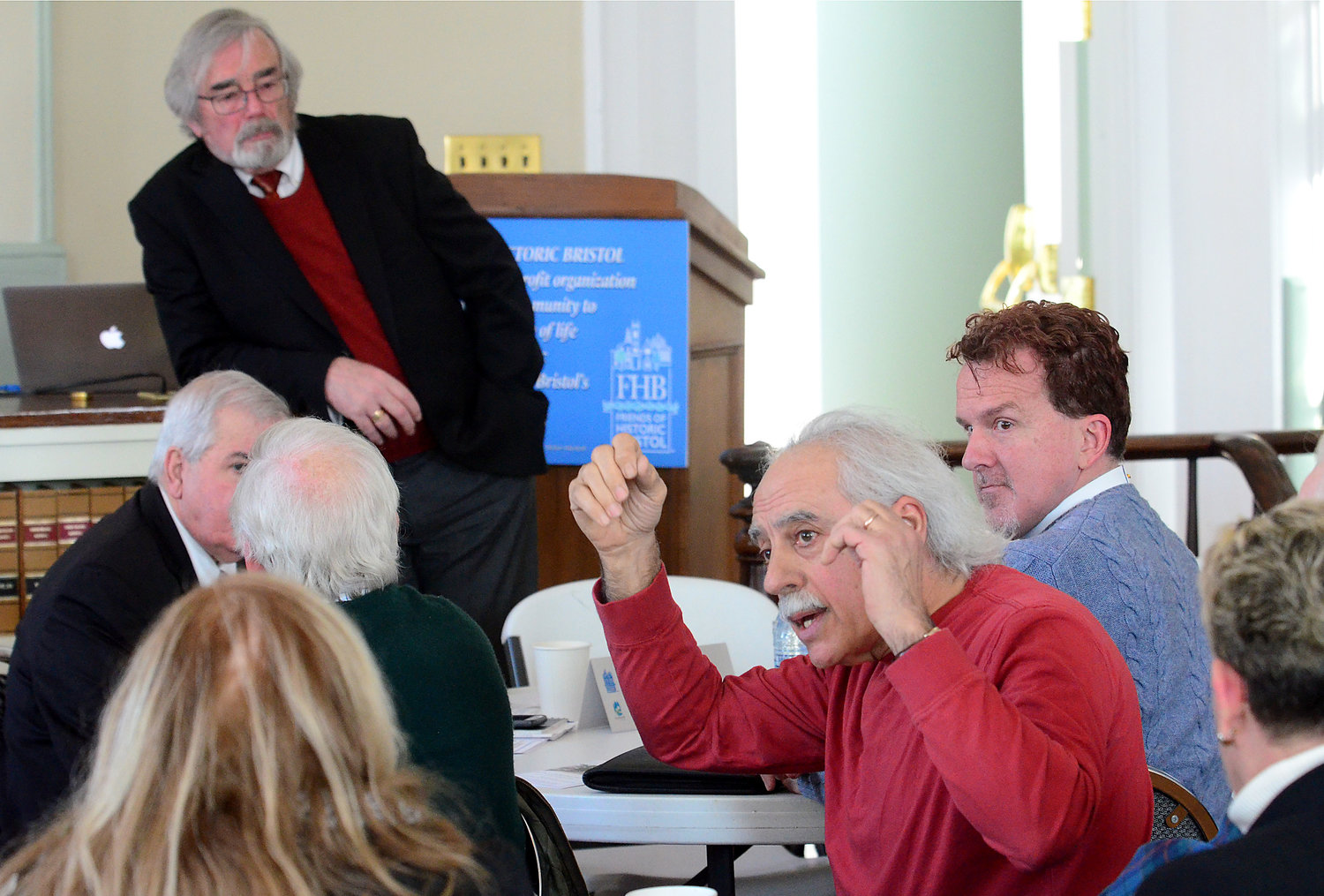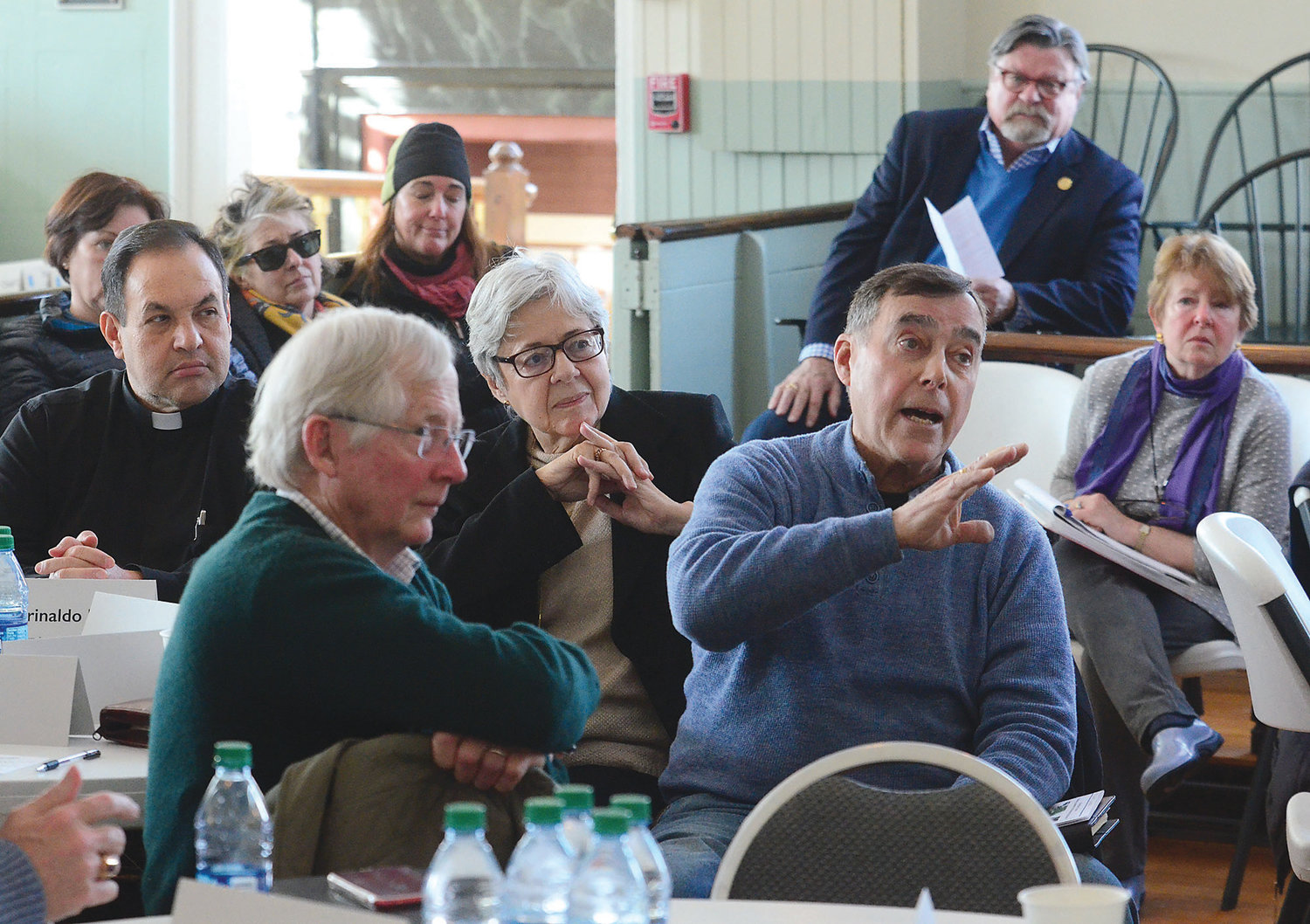Want business? Be a great place to live
Consultant tells Bristol crowd that millennials find a place to live, then look for a job
QUOTE
“Quality-of-life is not like some frosting on the cake — it is the fundamental core of what economic development …
This item is available in full to subscribers.
Please log in to continue |
Register to post eventsIf you'd like to post an event to our calendar, you can create a free account by clicking here. Note that free accounts do not have access to our subscriber-only content. |
Day pass subscribers
Are you a day pass subscriber who needs to log in? Click here to continue.
Want business? Be a great place to live
Consultant tells Bristol crowd that millennials find a place to live, then look for a job
Shop owners, community members and state and local government leaders were ready to get down to business last Thursday, Feb. 28, as they gathered inside the Bristol Statehouse for the first portion of a two-part community event, “A Brighter Future — Finding Economic Development Solutions,” sponsored by Friends of Historic Bristol and GrowSmart RI.
Throughout the series of afternoon round-table discussions, guest speaker Donovan Rypkema of PlaceEconomics — a Washington, DC-based firm specializing in historic preservation and its impact on downtown and commercial revitalization — shared his philosophy for what drives today’s economic development.
The “new” economic development
In the past, economic development could be defined as the “conscious, organized effort to improve a local economy.” That is no longer the case, according to Mr. Rypkema. In today’s day and age, the concept of economic development has become much more complex than that, primarily taking on a quality-of-life emphasis.
“Quality-of-life is not like some frosting on the cake — it is the fundamental core of what economic development is,” he said.
Encompassing elements from categories that range from culture and leisure, to transportation, education and the natural environment, quality-of-life concepts are so vast that it is impossible for the public, private and nonprofit sectors to work independently from one another. In order to achieve economic development success, he said, they must all work together.
While acknowledging how that theory likely applied to some groups, community member Michael Byrnes was unsure whether or not that ideology was appropriate here in Bristol.
“That’s probably true for millennials, but for immigrants — and Bristol is an immigrant town — the first thing is getting a job,” he said.
Though he agreed, Mr. Rypkema, however, felt as if even that mentality could spark economic development. High risk-taking by nature, the migrant population already embodies the qualities that go into successfully starting up a new business — offering the potential to breathe new life into downtown commercial districts.
“Immigrants are an opportunity for entrepreneurial rebirth.”
Targeting the millennial market
At some point this year, millennials will become the most dominant generation populating the United States — a fact, Mr. Rypkema says, communities need to pay attention to. More than ever, workers are first finding a place to live, then starting on a job hunt, meaning that towns are now not only competing locally, but globally. Establishing what will entice millennials to make Bristol their landing spot is critical.
“They are going to be driving the economy; we have to figure out what drives them, so we can keep them, attract them to our communities,” Mr. Rypkema said.
An easy place to start, he felt, was by looking at Roger Williams University, grabbing students as they graduate or creating an environment that they will one day want to come back to.
Though the millennial role in long-term economic growth was emphasized, business owner Lisa Bracken Hostetler called out their overall absence from the round-table discussions. While true, Mr. Rypkema felt as if it was less likely due to a lack of interest and more as a result of simply being unaware.
“Once they’re here, they’re not going to be at all reluctant to say what they’re going to say.”
Creating an affordable community
With rent prices either serving as a barrier or selling point for people living and operating businesses out of a community, audience members wondered how Bristol could establish itself as an affordable place to live. One way to do that, Mr. Rypkema said, was to incentivize downtown housing.
“It really does pay itself back, in terms of both enhanced property values and business generation,” he said.
By living in the heart of a commercial district, residents, Mr. Rypkema has found, are more likely to spend part of their income right there in town. While that may apply to those people living in town year-round, the Rev. Mr. Burton Bagby-Grose pointed out that Bristol does have a large seasonal community as well. There was also a large population that university professor Stephan Brigidi felt the town is currently missing out on due to inadequate lodging availability: the tourist market.
“That’s going to be the big attraction that’s going to allow retail to survive,” he said.
While he conceded that accommodating a diverse range of populations and their varying incomes is an issue many other communities are still working to address, Mr. Rypkema felt there was another way that retail establishments could find a way to prosper — by getting landlords and tenants to understand where their building’s value comes from.
“The value of real estate comes from its context,” he said.
Both parties are dependent on one another, Mr. Rypkema argued, and it serves property owners no benefit to raise rents so high that their buildings remain vacant for months on end.
By the end of the day, Mr. Rypkema and community members had raised a number of issues and points for the town to consider as it moves forward with its own economic development agenda. In the spring, the Friends will next host an event featuring Kathy La Plante of Main Street America.










